
Coral Fungus (Ramaria leptoformosa) Oregon Photography
Hericium and lions mane mushrooms are a beautiful, edible mushrooms that can resemble bunches of coral or furry pom pom balls. They're relatively common, easy to identify, harvest and cook. I'll describe where and when to find them, how to tell which one you have, and how to cook them.

Coral Mushroom (Ramaria aurantiisiccescens) Oregon Photography
True coral mushrooms are the most common type of coral mushroom and include species such as Clavulina coralloides, Ramaria botrytis, and Clavicorona pyxidata. These mushrooms have a distinctively branched shape with multiple branches radiating out from a single base.
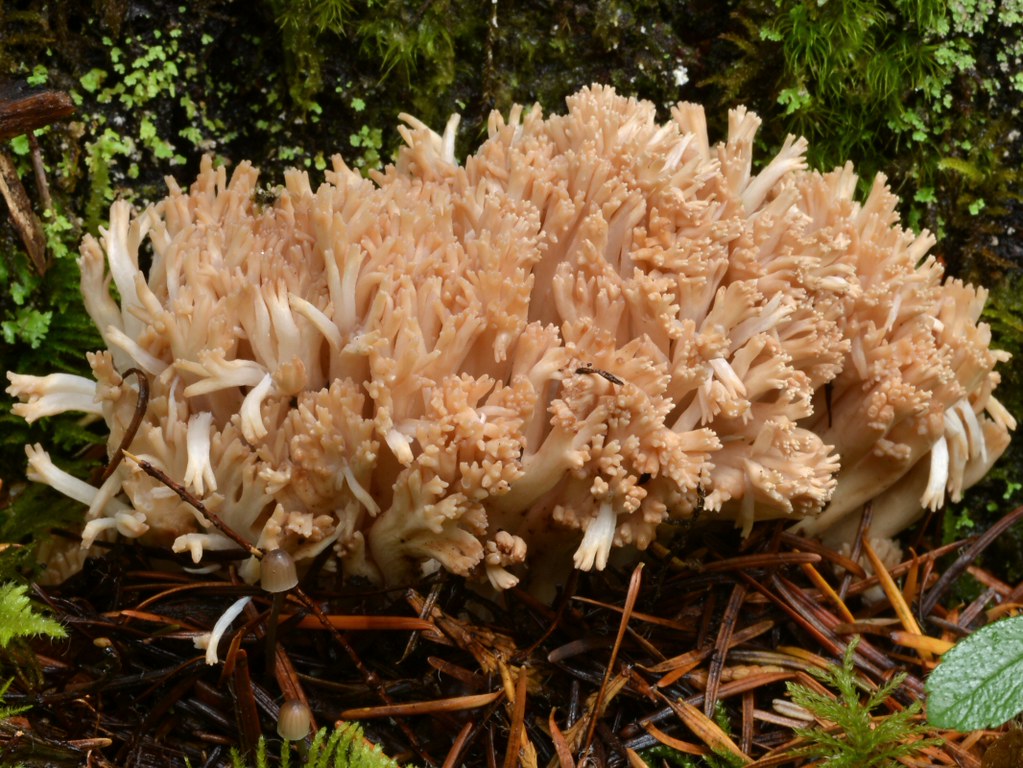
Coral Mushroom (Ramaria, Clavariaceae) in the Oregon woods… Flickr
November 27, 2013 Rick Mushrooms of Oregon (Some are edible!) Fall in the Pacific Northwest brings three things; rain, leaves falling off trees, and mushrooms. These are pictures of mushrooms that I've found around Portland Oregon. Most were found in Mount Tabor City Park, while the rest are near Munson Falls just south of Tillamook Oregon.

Photo of Ramaria Coral Fungus by Photo Stock Source plant, Walton
Coral Mushrooms (Ramaria species and Artomyces Species) have been largely overlooked by the foraging community in the Western world, but they're commonly eaten in many countries. Many species have turned out to be not only edible but delicious. There are, however, still toxic species of coral mushrooms, so these mushrooms are not for beginners!

Coral fungus (Ramaria suecica) Oregon Photography
Ramaria mushroom - Coral Mushroom in Oregon forest. By Trent Blizzard. Posted June 20, 2020. In 0. Trent Blizzard. Recent Posts. Mushroom Hunting Maps and Online Research. Disturbance Morels and Forestry Contracting Maps. Precipitation maps that help predict mushroom hunting success. 2023 Burn Morel Maps Released! Leave a Comment. Cancel.
Edible coral mushroom? Found in oregon conifer forest about 5000 feet
52 Coral Mushroom Identification With Pictures Coral Fungi Xylaria polymorpha: The Ultimate Mushroom Guide Xylaria longipes: The Ultimate Mushroom Guide Xylaria hypoxylon: The Ultimate Mushroom Guide Xylaria carpophila: The Ultimate Mushroom Guide Typhula juncea: The Ultimate Mushroom Guide Trichoglossum walteri: The Ultimate Mushroom Guide
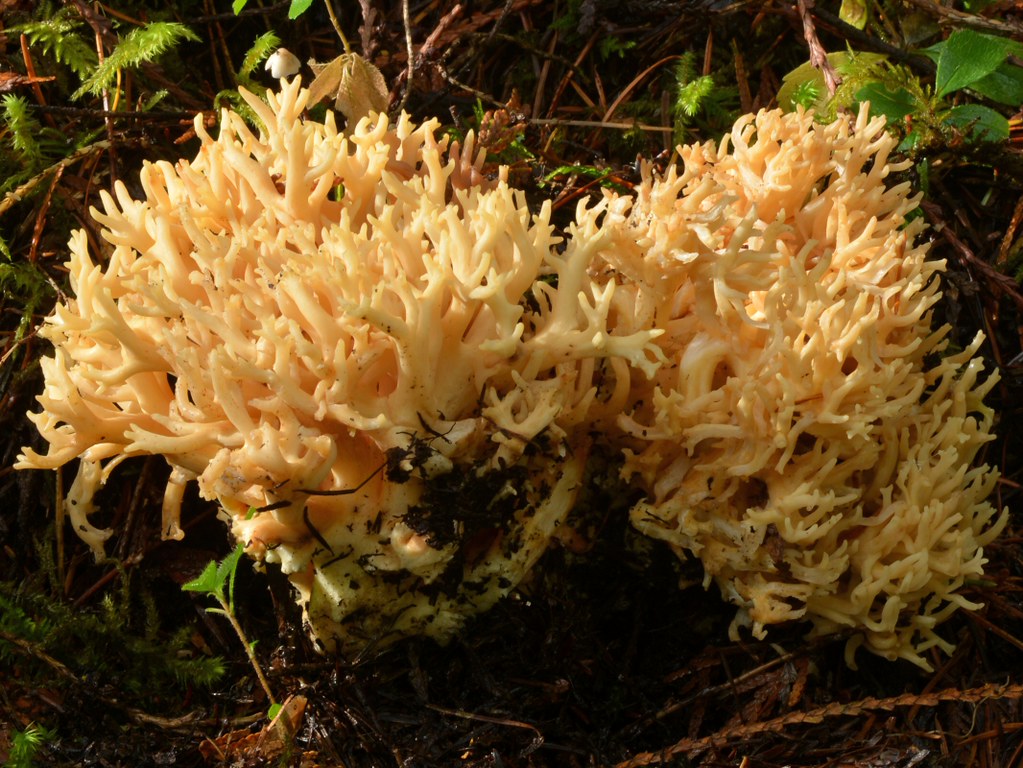
Coral Mushrooms (Ramaria, Clavariaceae) in the Oregon wood… Flickr
In case you are not familiar with a mushroom, ask somebody who has survived his or her fungal forays and is familiar with the species you are intending to consume.]. would not manage to confuse this mushroom with a coral fungus or a pile of egg noodles).. The Oregon Chanterelle study observed one Pacific Chanterelle living for nearly two.

"Edible Coral Mushroom In Oregon Forest" by Stocksy Contributor
Scientific Name: Boletus edulis. Average size: 10 to 30 cm in diameter. Color: light red or brown. Can be found: beneath trees, notably beech and birch. Edible: Yes. King bolete is one of the most common wild mushrooms in the state. These boletes are large mushrooms that can weigh up to 2 pounds when fully mature.

Ramaria mushroom Coral Mushroom in Oregon forest Modern Forager
The 9 common mushrooms found in Oregon are the morel, chanterelle, king bolete, red cracked bolete, oyster mushroom, honey mushroom, lactarius mushrooms, puffballs, and coral mushrooms. 1. Morels Morels are a highly sought-after edible mushroom that pops up in the springtime. They have a distinct honeycomb appearance and nutty, earthy flavor.
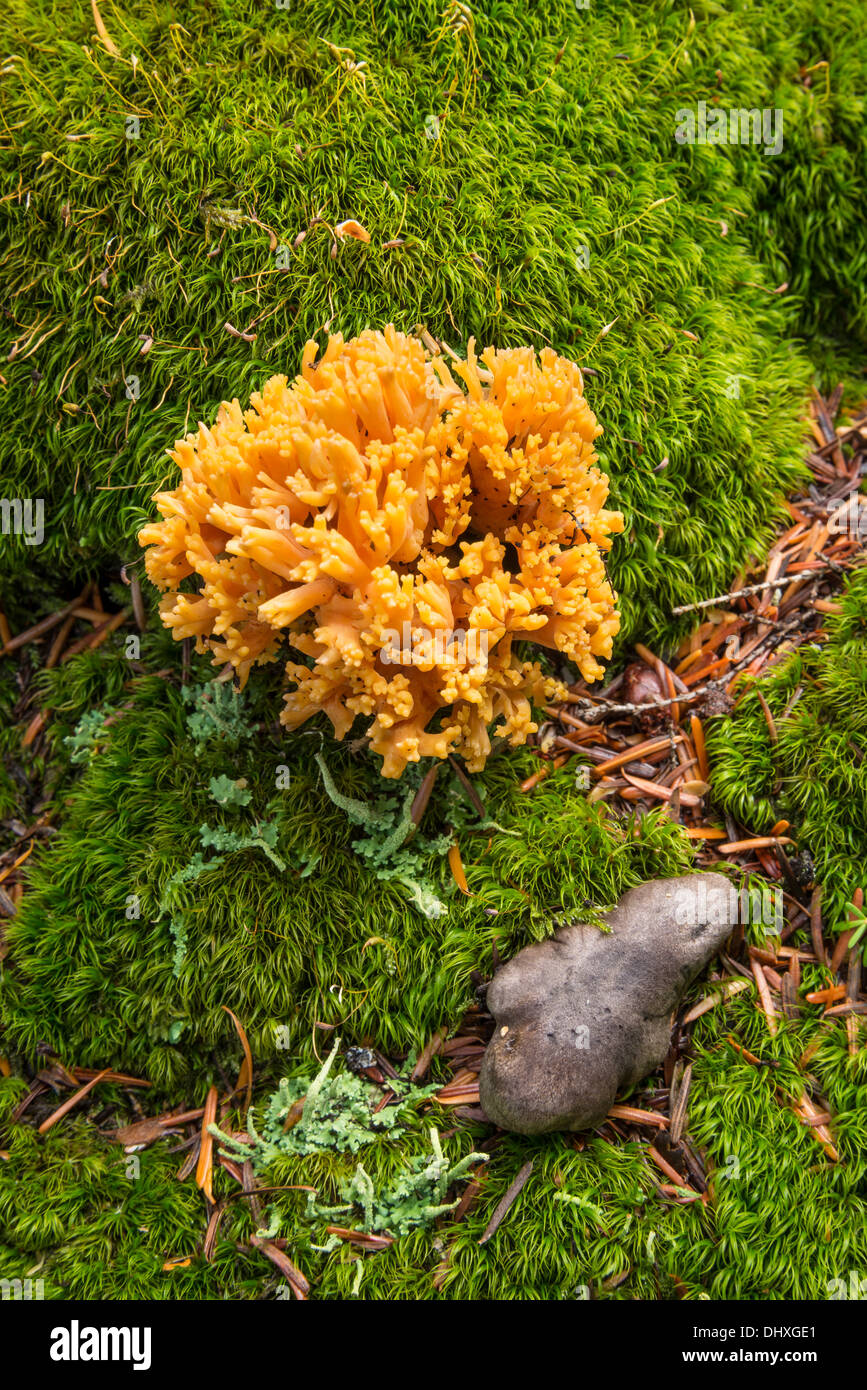
Bear'shead tooth fungus or coral mushroom along Diamond Creek Falls
Coral mushrooms, otherwise known as Ramaria, are aptly named because they look similar to coral. Many species are edible but some may cause gastric upset for some people. Unfortunately the corals are often attacked by larvae, which can ruin a good meal quickly.. Central Oregon Mushroom Club. [email protected] Bend, OR 97702.
Found this coral mushroom yesterday while on my first foray! (Oregon
Coral mushrooms, also known as crown-tipped coral, are one of the most visually exotic wild mushrooms around. They're in season from June to September and are only available as a foraged fungi. You can sometimes buy them in specialty grocery stores, but they are more commonly found at farmer's markets.
%2C_upper_Oneonta_Trail.jpg)
FilePinkish coral mushroom (Ramaria formosa), upper Oneonta Trail.jpg
The mushrooms I have lumped together as "clubs and corals" are related only in their general appearance, and not in any taxonomic or scientific sense. In fact some of them are radically different, from a mycological standpoint, belonging to entirely different phyla. Identifying these mushrooms ranges from relatively easy to profoundly difficult.
Red Coral Mushroom (Oregon Coast) r/mycology
Common found in Oregon and Washington, the Pacific golden chanterelle is a type of edible mushroom that can be found in high elevation forests. It's only found in the Pacific Northwest and is closely related to the Cantharellus cibarius (golden chanterelle). Identification: These edible mushrooms have a soft yellowish-orange color.
Edible coral mushroom? Found in oregon conifer forest about 5000 feet
Founded 1956 Since 1956, the Willamette Valley Mushroom Society in Salem, Oregon, has brought together wild mushroom enthusiasts to explore, discover, and learn about the amazing variety of wild mushrooms in Western Oregon. We welcome your interest in our activities and we invite you to join us!
Coral mushroom? Edible? Southern Oregon r/mycology
Below: Purple Coral Mushrooms ( Clavaria zollingeri) are listed as inedible. Where to Find Crown Tipped Coral Mushrooms These mushrooms grow only on dead and dying wood like oak, especially mossy decaying logs. Crown tipped corals will not grow directly on the ground like Ramarias.

Ramaria coral mushroom, growing on a forest floor in Monroe, Oregon
Crown coral mushrooms, in particular, have a distinctive appearance. The tip of its branches has many small tips surrounding a bowl-like depression (much like a crown), which makes this mushroom species easy to identify. Usually 4-13 cm (1.5-5 in) in height, these shrooms vary in color, ranging from whitish to a yellowish tint and even tan.